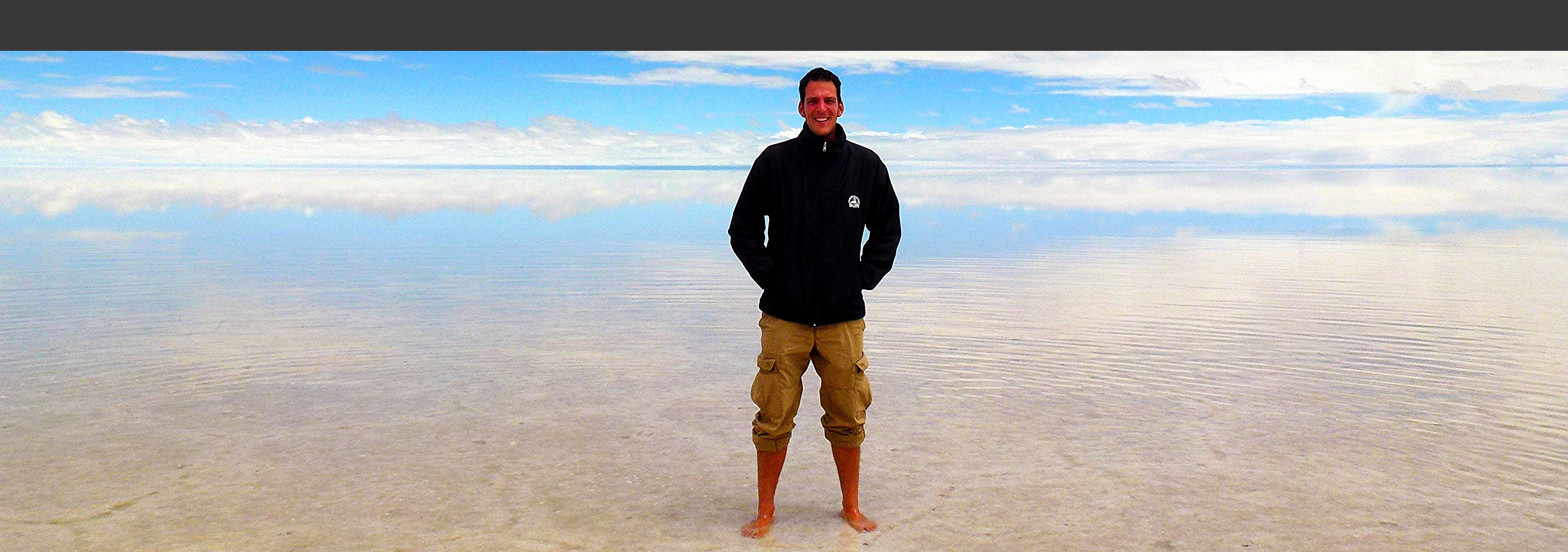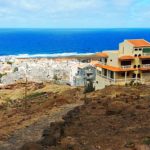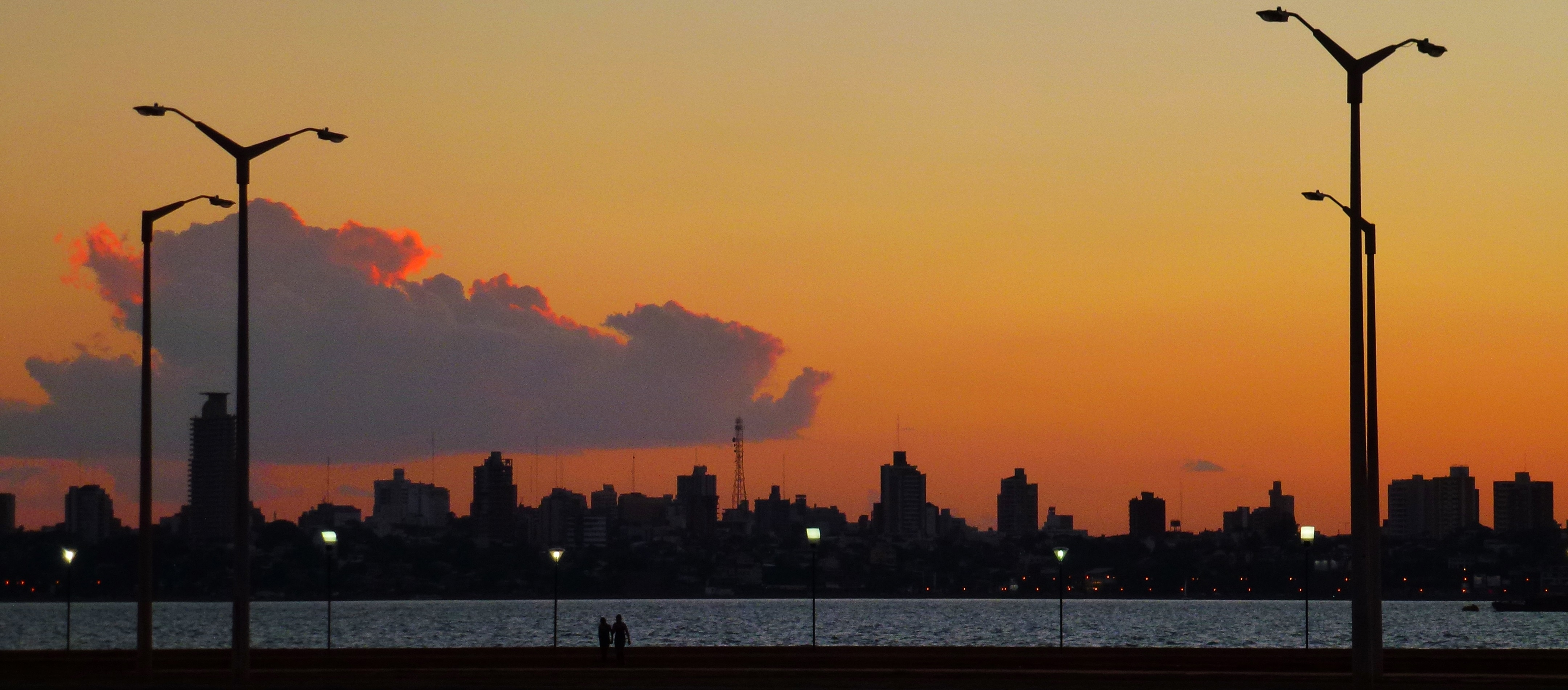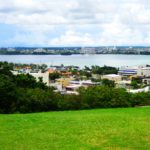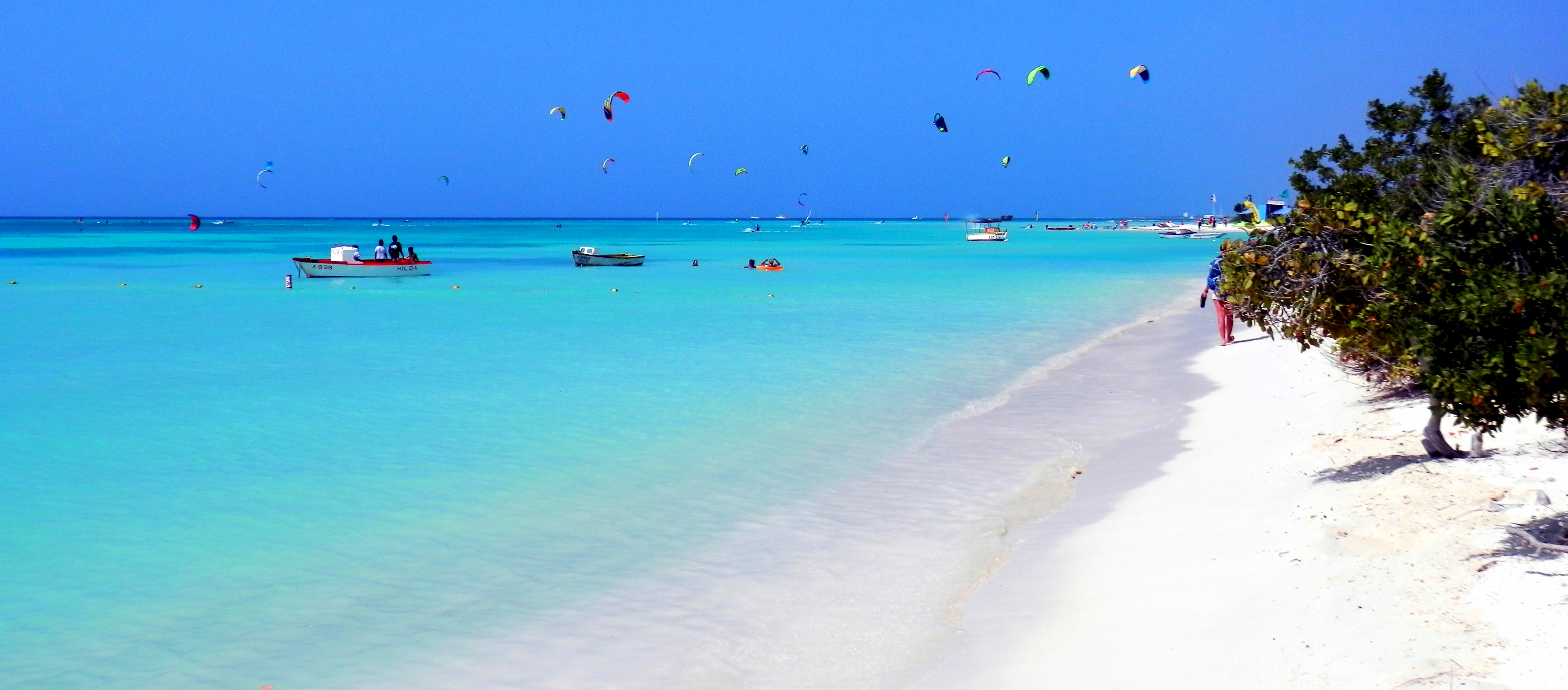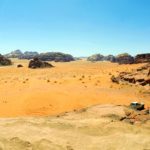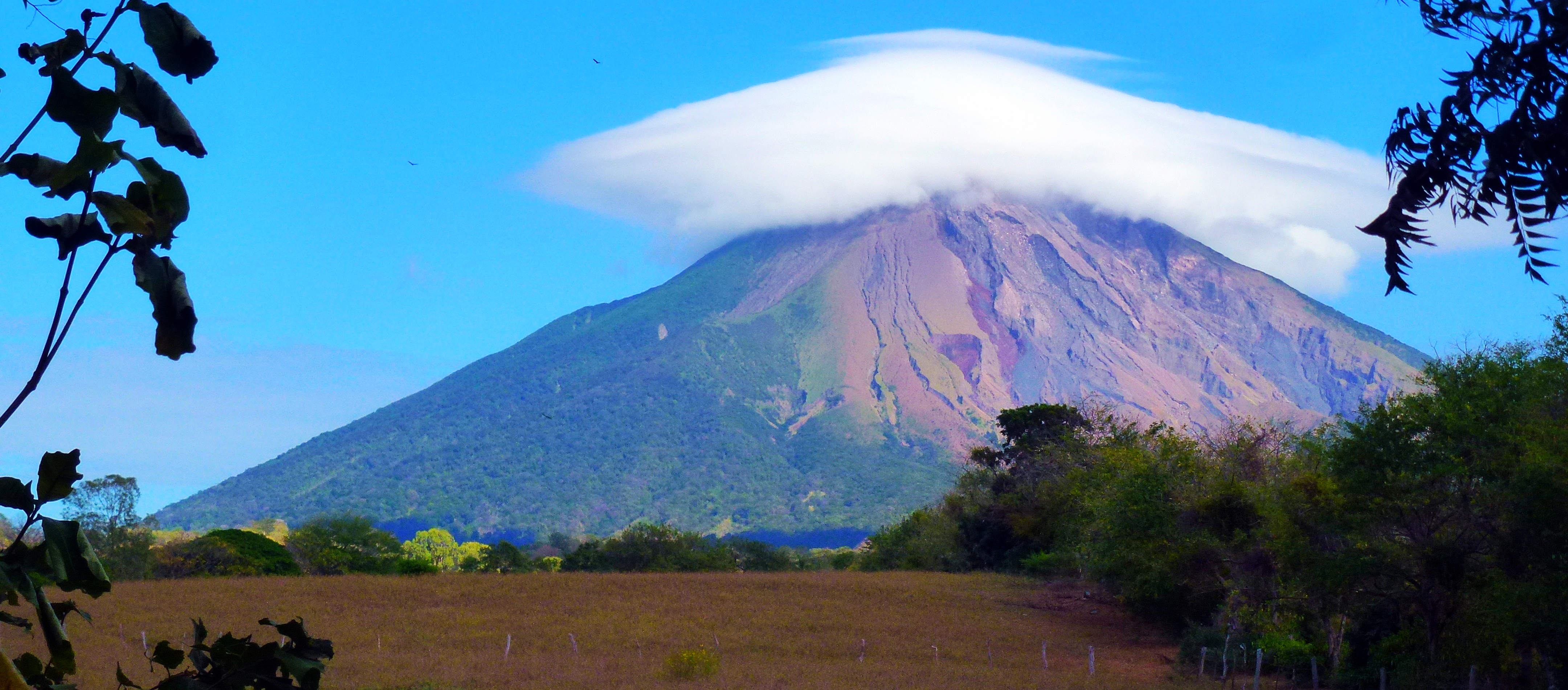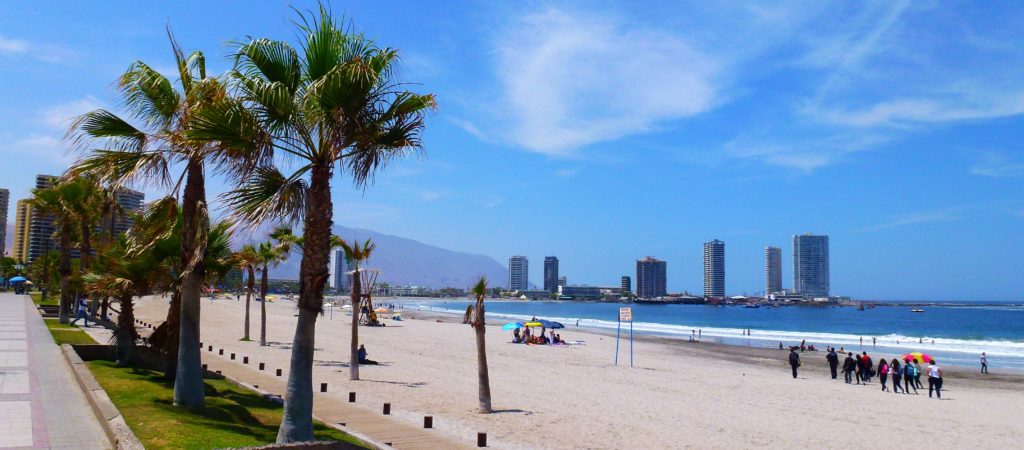
Chile is where nature is running free. It’s the longest and narrowest country in the world with more than 6000 km of Pacific Ocean coastline. You can find in Chile a mind blowing variety of landscapes and amazing natural wonders. This is due in particular to its wide geographic location. One-third of Chile is covered by the towering ranges of the Andes. In the south you will be amazed by the wide-open natural areas of Patagonia: a hiker’s paradise where soaring peaks meet rushing rivers. In the north you will find the driest place on earth; the Atacama desert.
Facts
- Capital: Santiago
- Language: Spanish
- Currency: Chilean peso (1 € ≅ 740 CLP)
- Population: 18.3 million
- Size: 756.102 km² (18 times Holland)
- Daylight saving time: Yes
- Visas: Not required for most European and American citizens, others visa on arrival or visa required before entry
- Best time to visit: Oct – March (summer of southern hemisphere)
- Visited: 2011 (part of South America trip)
Iquique
I reached the city of Iquique in 24h by bus coming from Valparaíso. Dry wide-open plain fields dominate the views during this long bus ride. I knew I was getting closer to the driest place on earth. After 24h a modern looking city was popping up out of nowhere. Iquique is a coastal city situated west of the Atacama desert. Back in the 19th century Iquique was a prosperous mining town, today it’s a popular holiday destination with a tax-free port area. There’s nothing more rewarding after a long bus ride than to take a refreshing plunge into the ocean. Iquique is a nice city and I was very surprised that the beaches were almost empty.
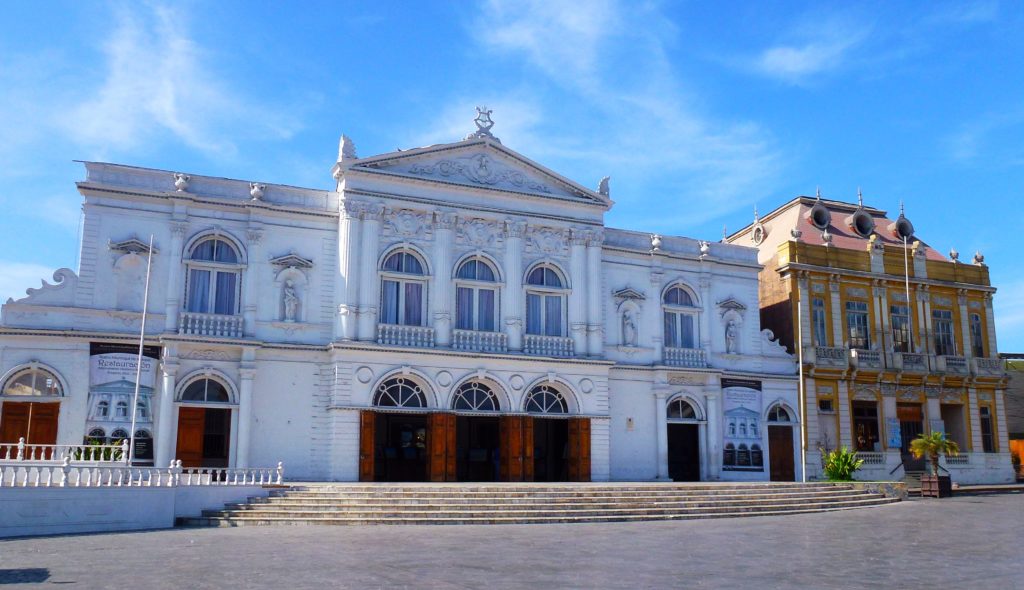
The centre of Iquique.
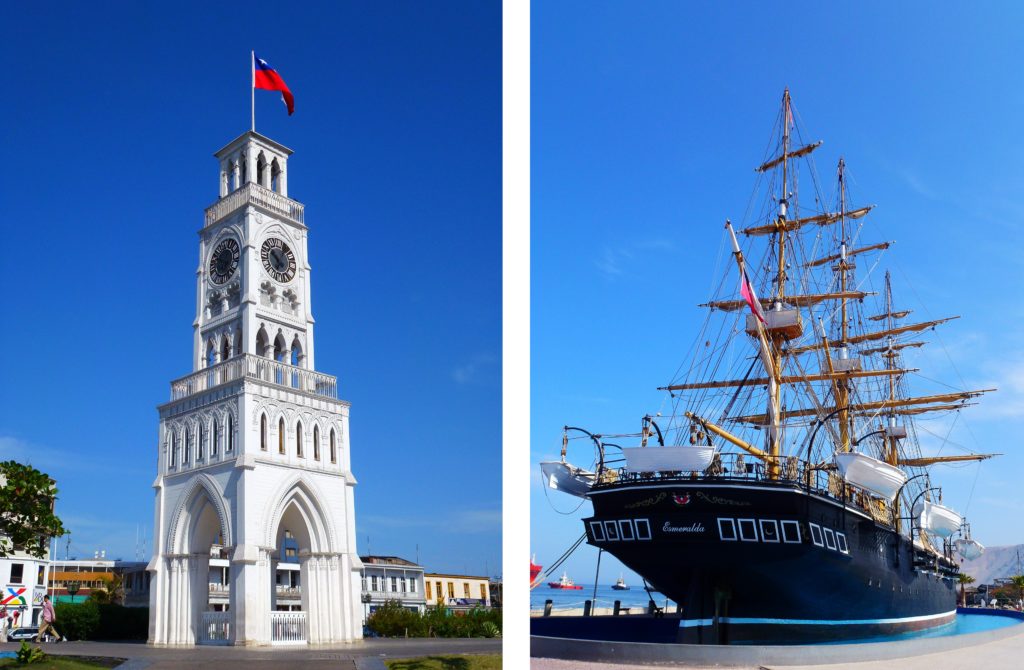
Left: The famous clock tower – Right: The port of Iquique
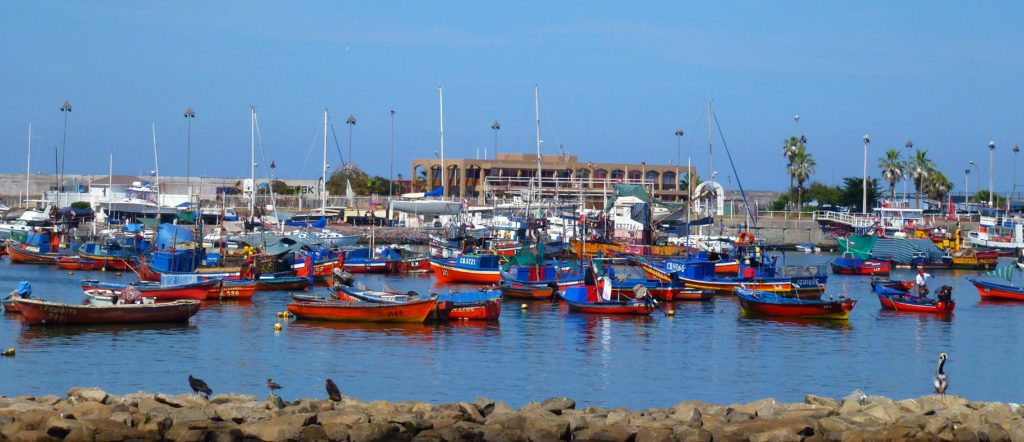
What’s a port city without boats?
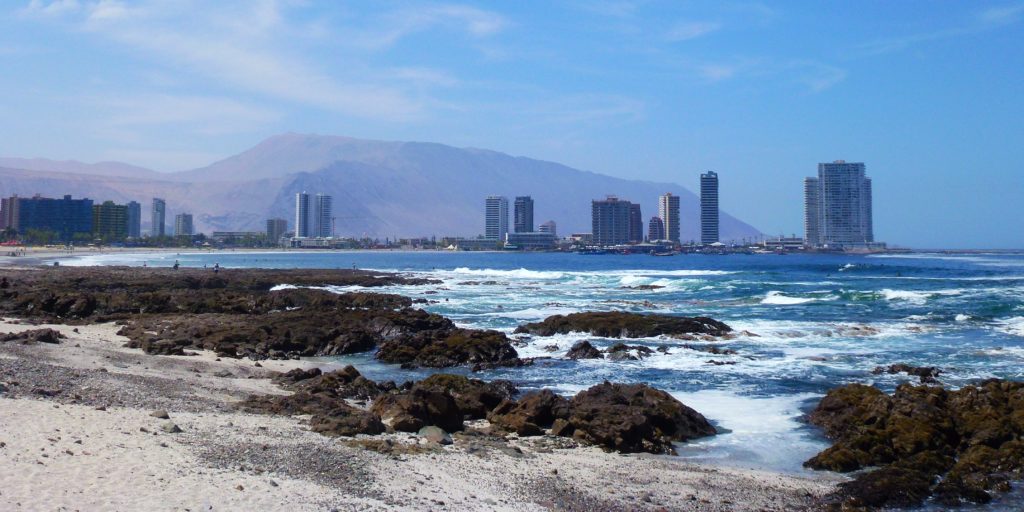
The rugged coastline of Iquique.
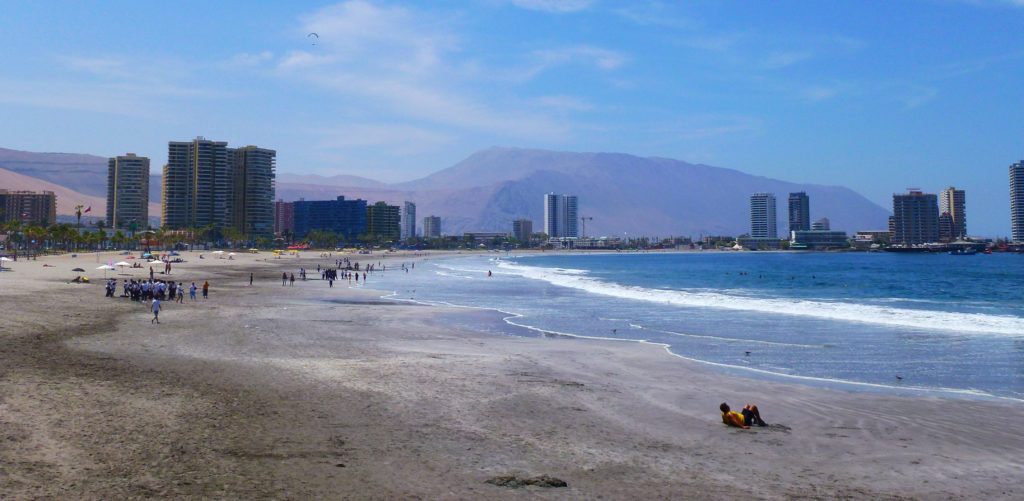
The beach is always good for a morning stroll.
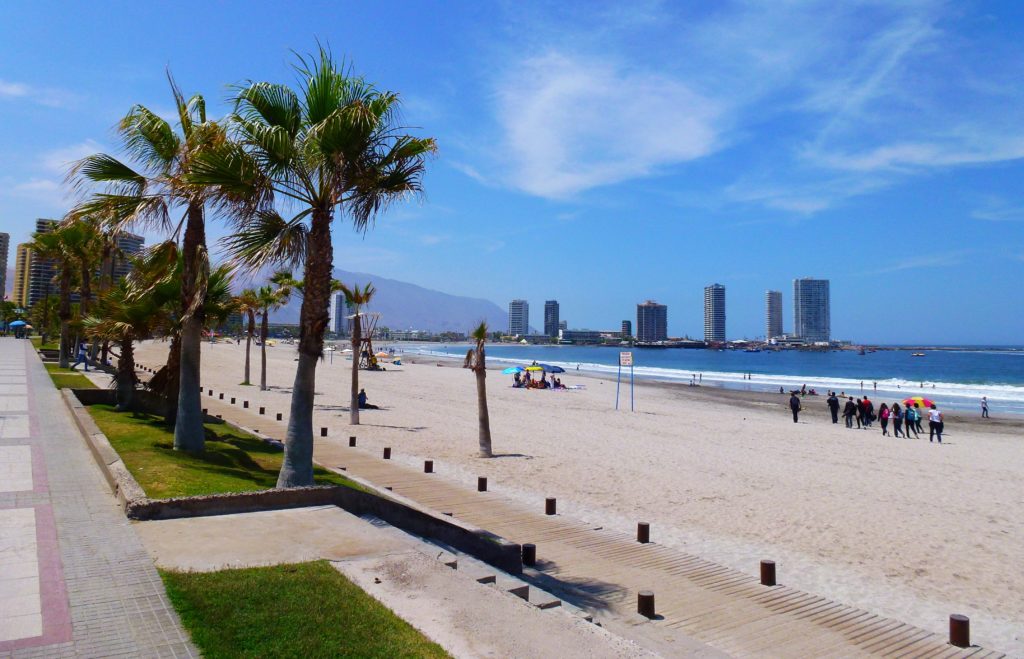
Beach time!
One of the interesting things to do in Iquique is to visit one of the nearby abandoned saltpetre mining towns. I visited the mining towns Humberstone and Santa Laura which have been abandoned since 1960. It’s fascinating to walk around these ghost towns. It felt like I was wandering around the set of a Western movie. These towns could also form a great setting for a horror movie. Difficult to imagine how this place would have looked like while it was inhabited by almost 3500 people back in 1940. The work environment in the desert can barely be called human. The workers were outside all day under a blistering sun with little shade digging for saltpetre. The mining towns had ‘everything’ in place to form their own independent town isolated from the rest of Chile or even the surrounding region. The town was equipped with a supermarket, theater, swimming pool and a school for the children of the workers.
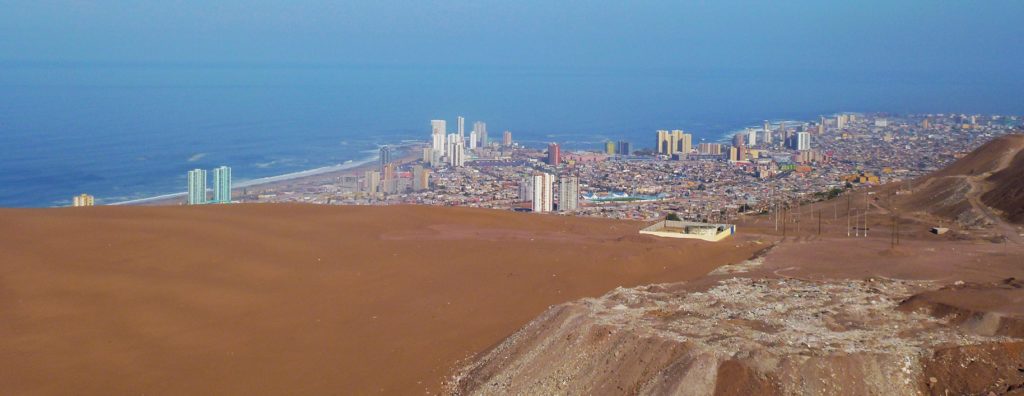
Leaving Iquique for the abandoned mining towns.
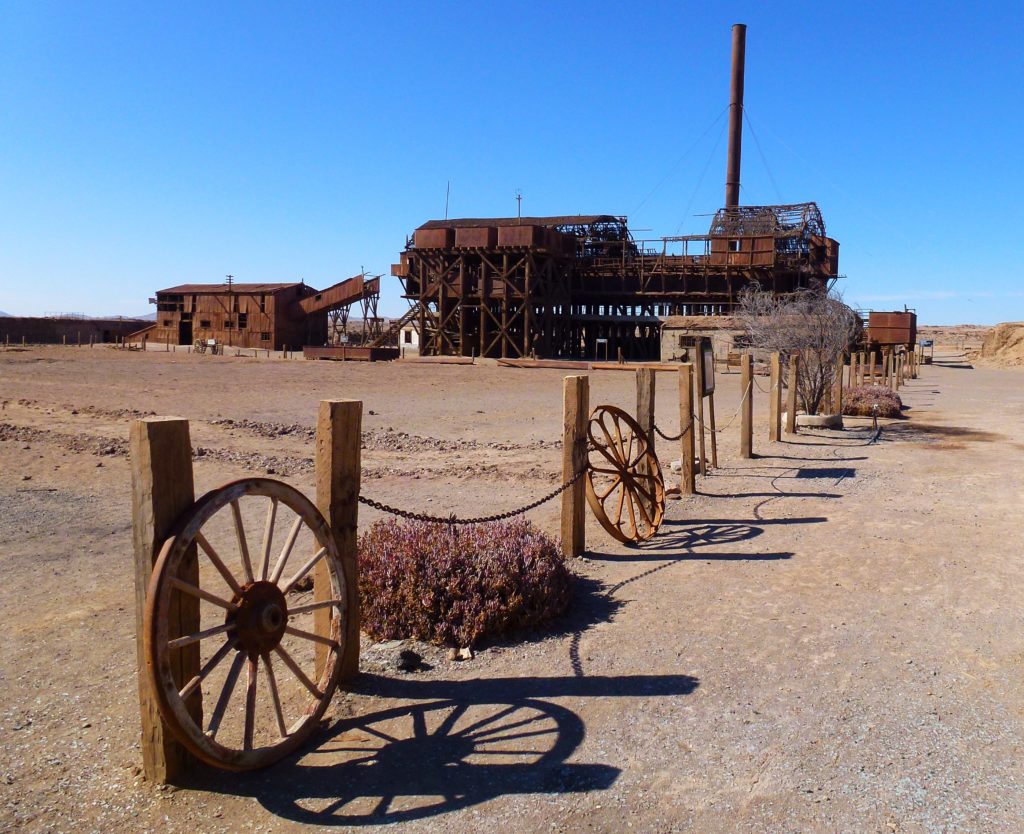
The abandoned factory of Santa Laura.
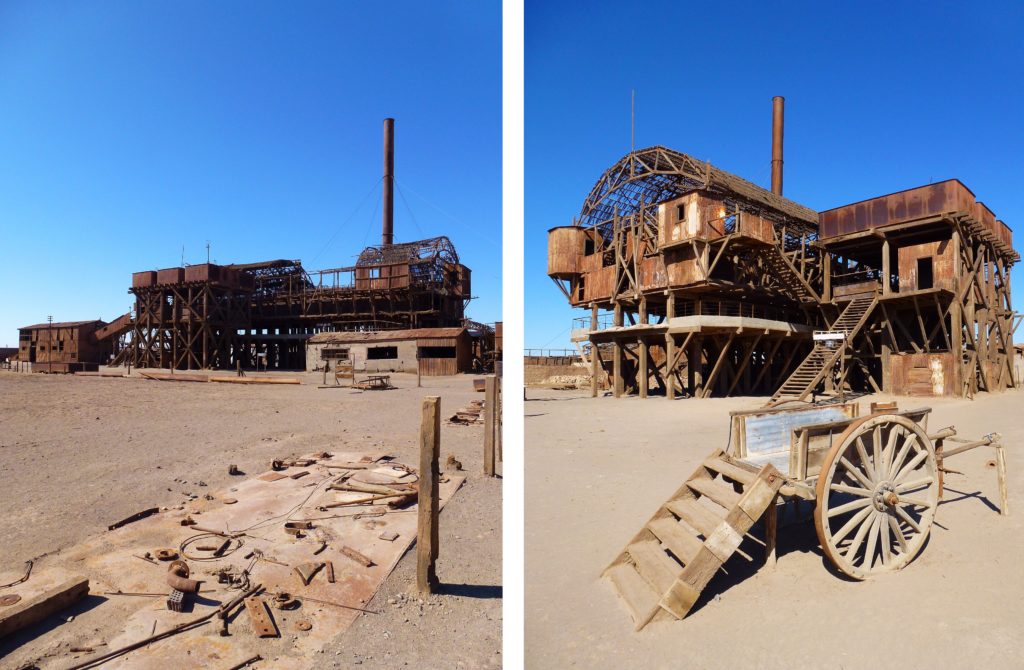
Santa Laura’s plants.
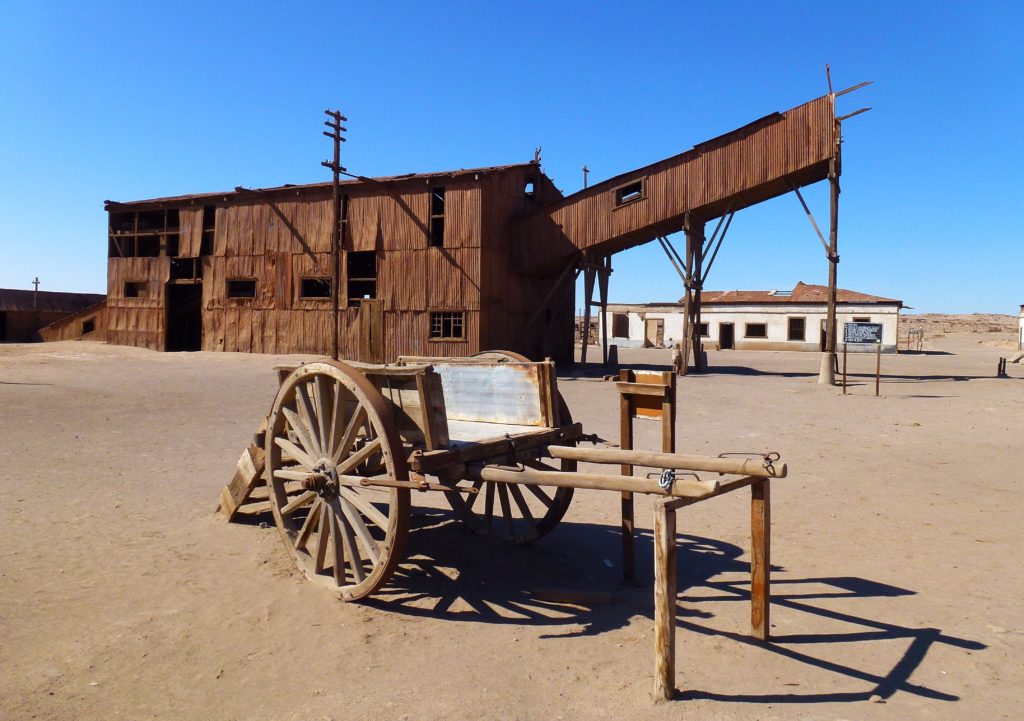
Difficult to imagine how this place would have looked like back in the days.
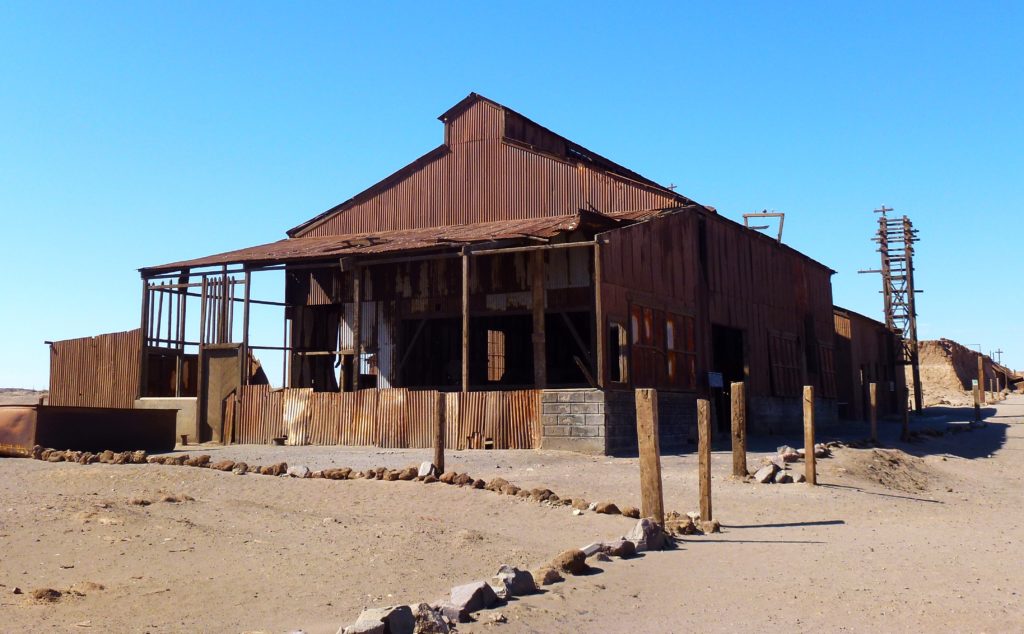
Humberstone and Santa Laura.
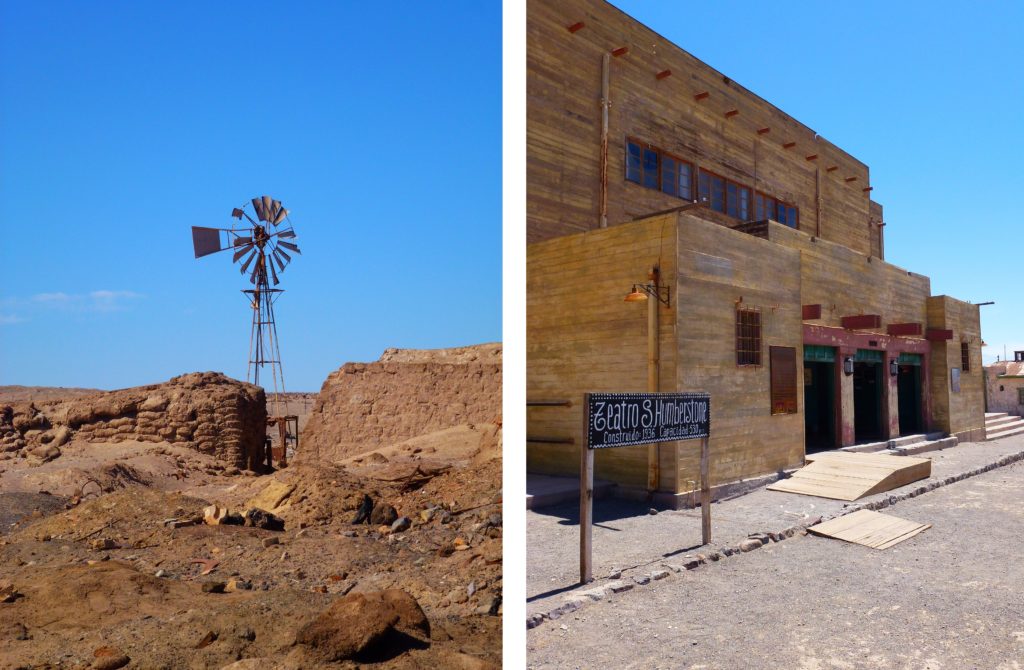
Left: An eerie windmill – Right: The ‘local’ abandoned theater
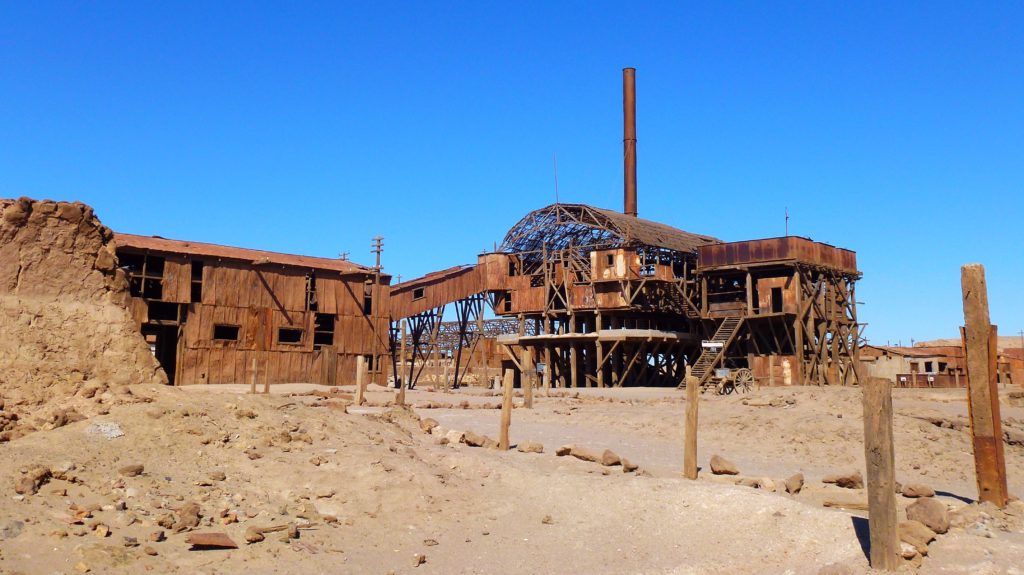
Abandoned saltpetre plants.
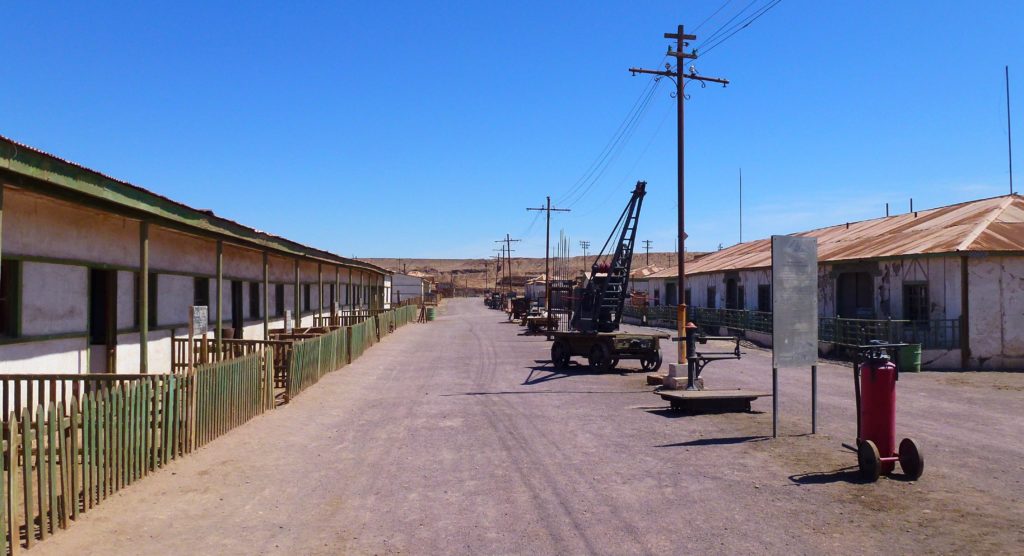
Street of workers’ cottages at Humberstone.
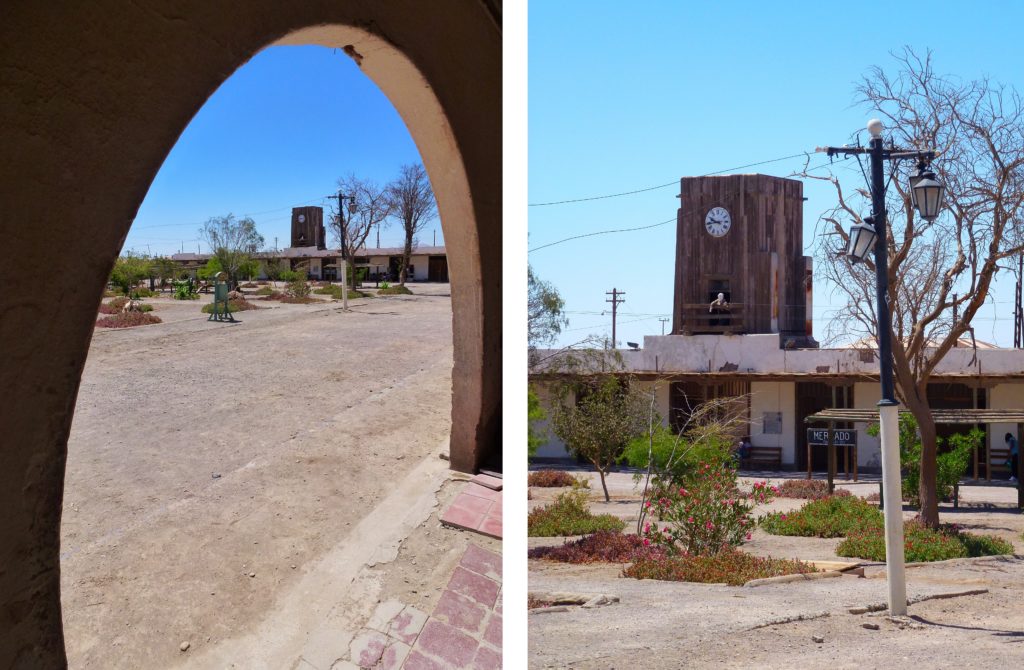
The main plaza at Humberstone.
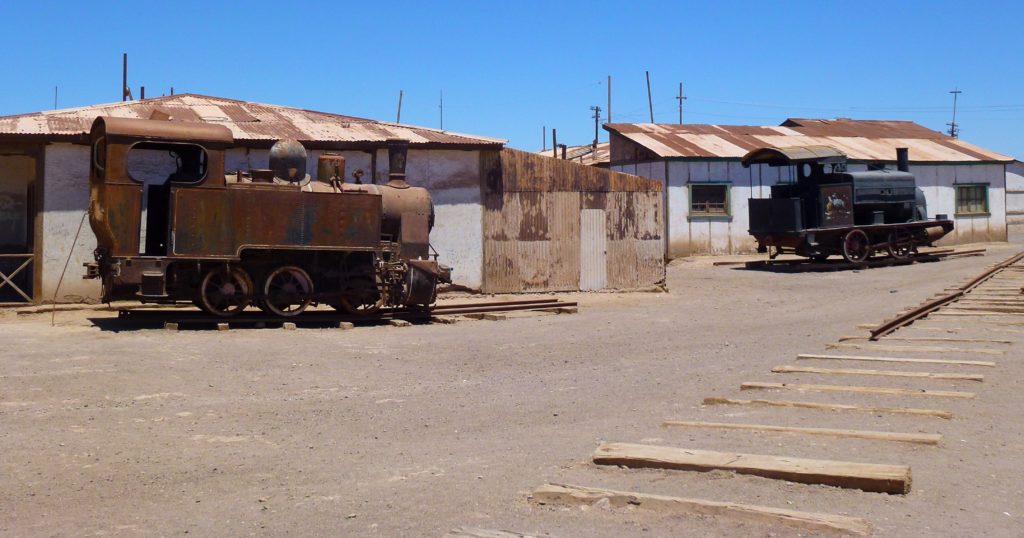
Abandoned trains at Humberstone.
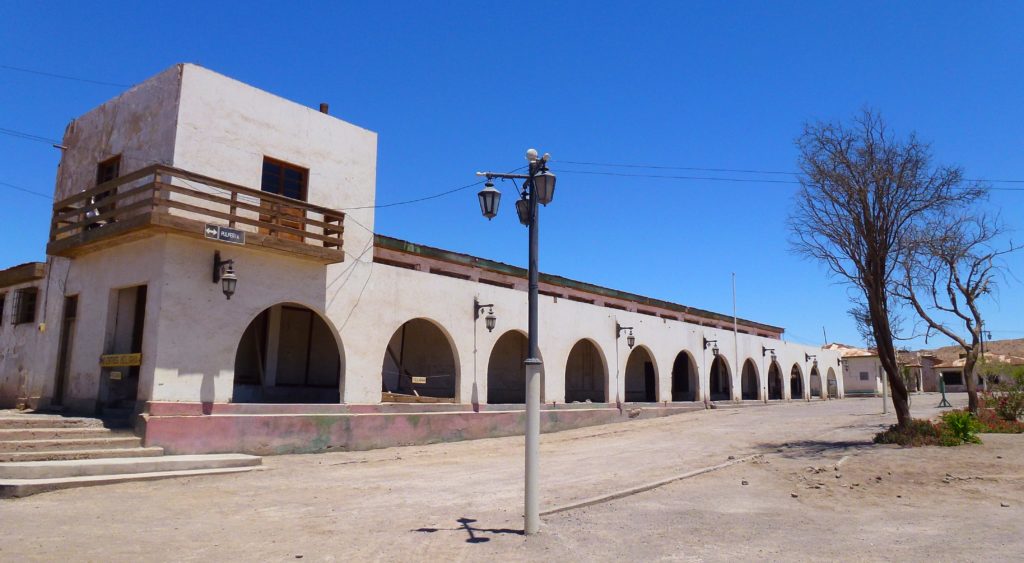
A ghost town is all what is left of Humberstone.
Visiting the abandoned mining towns of Humberstone and Santa Laura was such an interesting experience. If you would like to visit an active mine then you can visit the Chuquicamata mine which is located just out of Calama. It’s the largest open pit copper mine in the world. Chile produces one-third of the copper in the entire world.
Atacama
From Iquique I traveled southeast to San Pedro de Atacama. This small desert town is set on an arid high plateau in the Andes mountains of northeastern Chile. The desert landscapes are breathtaking. When you explore the dusty streets of San Pedro you will see huge mountains rising around every corner. Splendid views! The Atacama desert is the driest desert in the world. Some weather stations in the Atacama have never received rain! During the day, temperatures in the desert can reach around 40° C, and in the night these temperatures can fall to 5° C. The sky is so incredible blue in the desert. The Atacama ranks as one of my top desert destinations in the world. Particularly because of its wide variety of landscapes. The Atacama is a wild mix of sand dunes, salt flats, volcanoes, geysers, hot springs and salt lakes. You can see the region by joining the numerous tours which leave San Pedro on a daily basis or get your own wheels. Atacama also has a famous desert party scene.
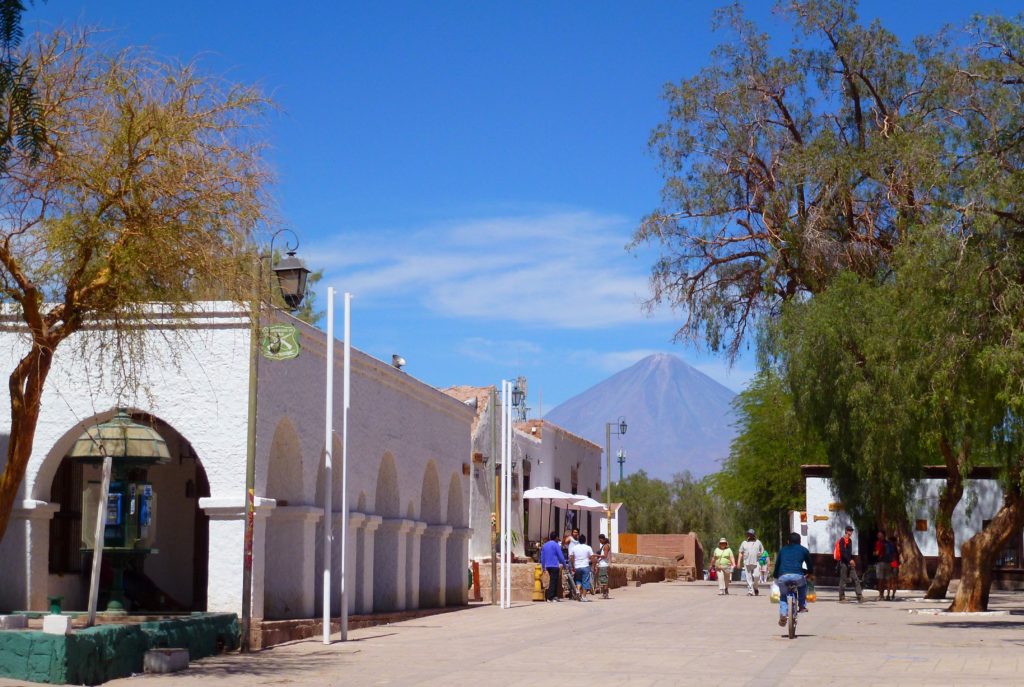
The dusty streets of San Pedro de Atacama.
Visiting the Valle de la Luna in the nearby Los Flamencos National Reserve should be on top of your list. It’s a lunar-like landscape with unusual rock formations, huge sand dunes and pink-streaked mountains. Such a breathtaking place! You can hear the rock formations crack when you walk around this place; this is caused by the huge temperature difference between day and night.
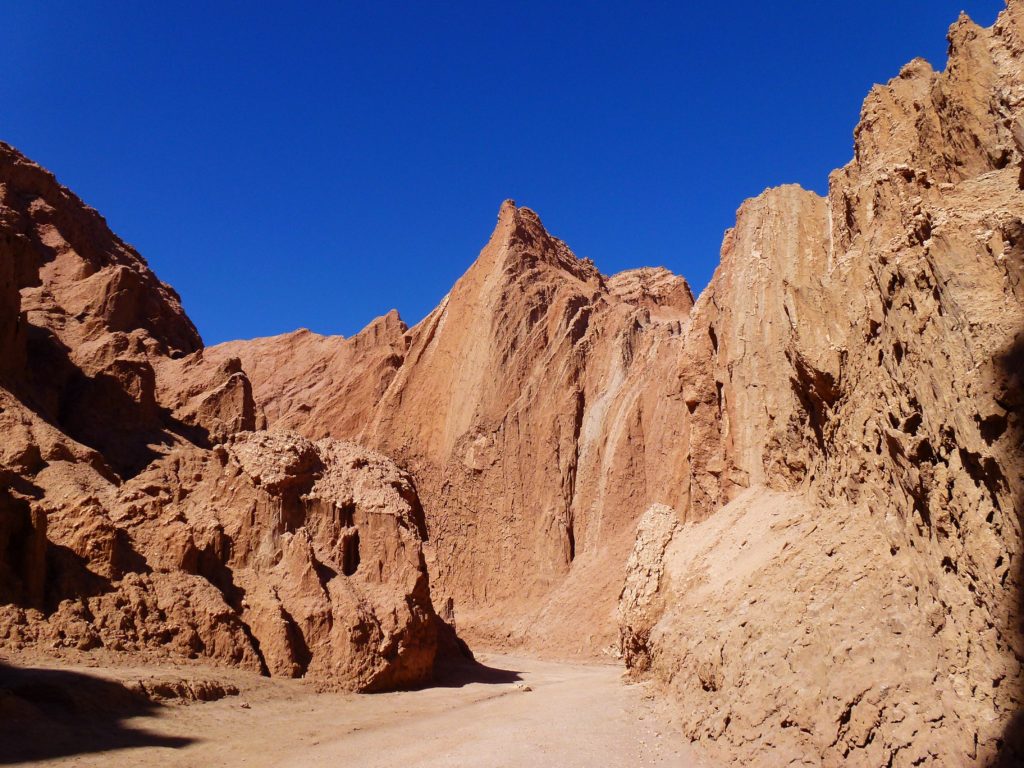
Welcome to Los Flamencos National Reserve.
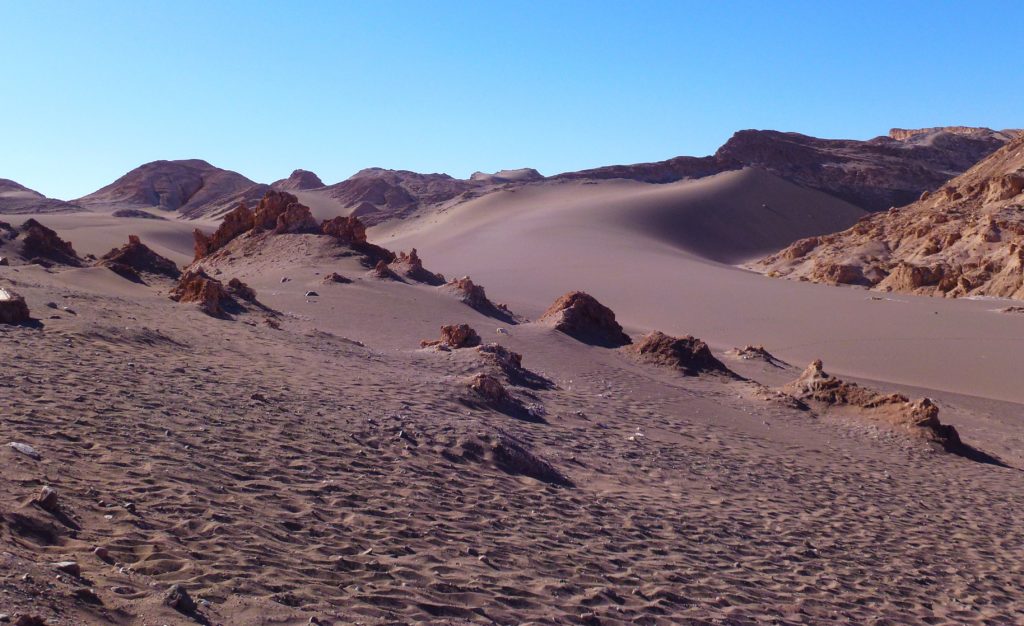
Incredible sand dunes.
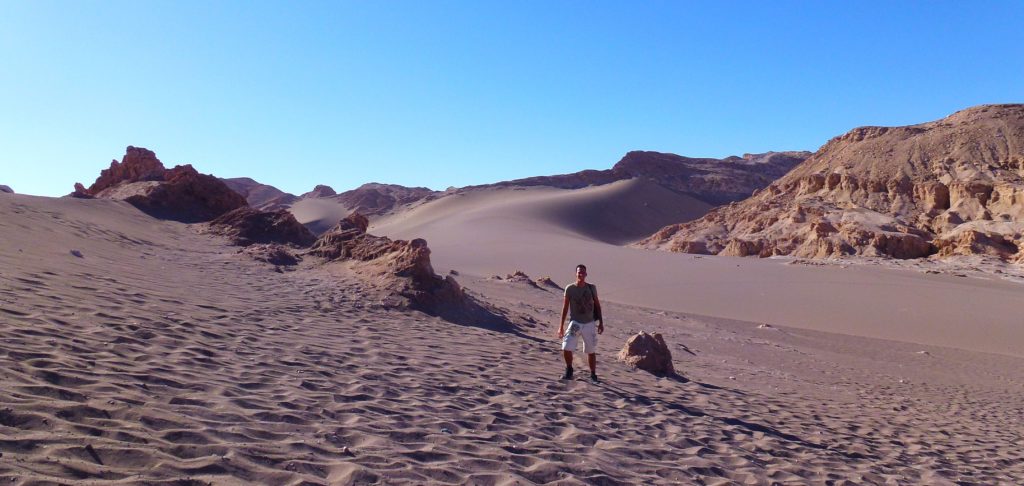
Such a breathtaking desert!
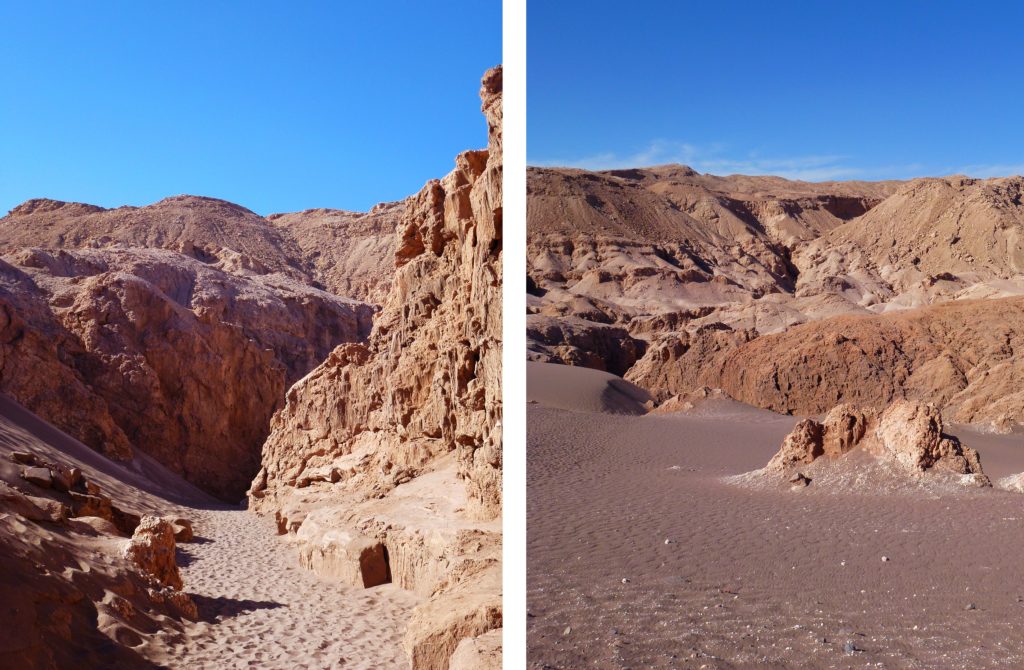
Incredible rock formations.
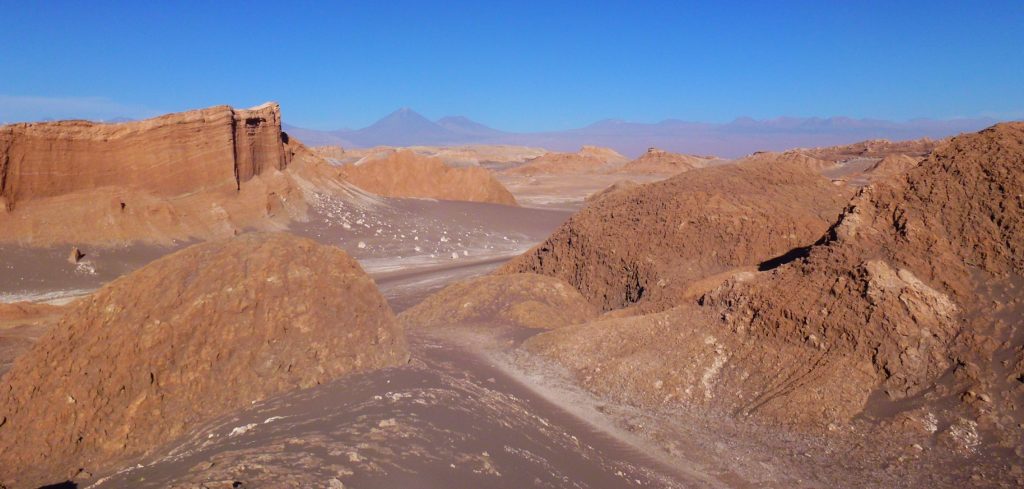
The landscapes are just splendid.
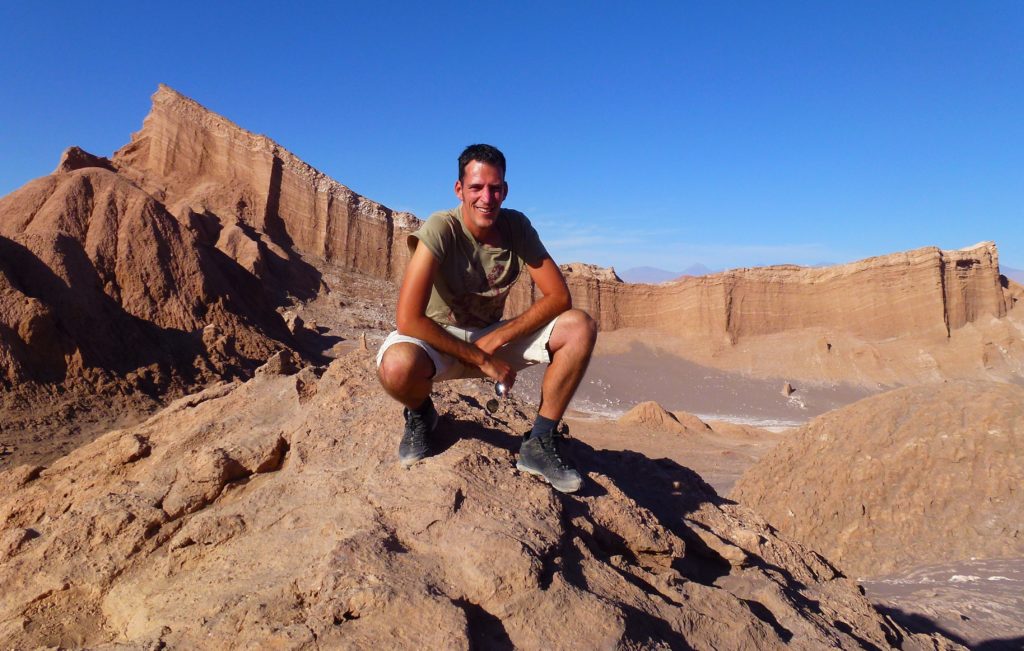
The desert is hot!
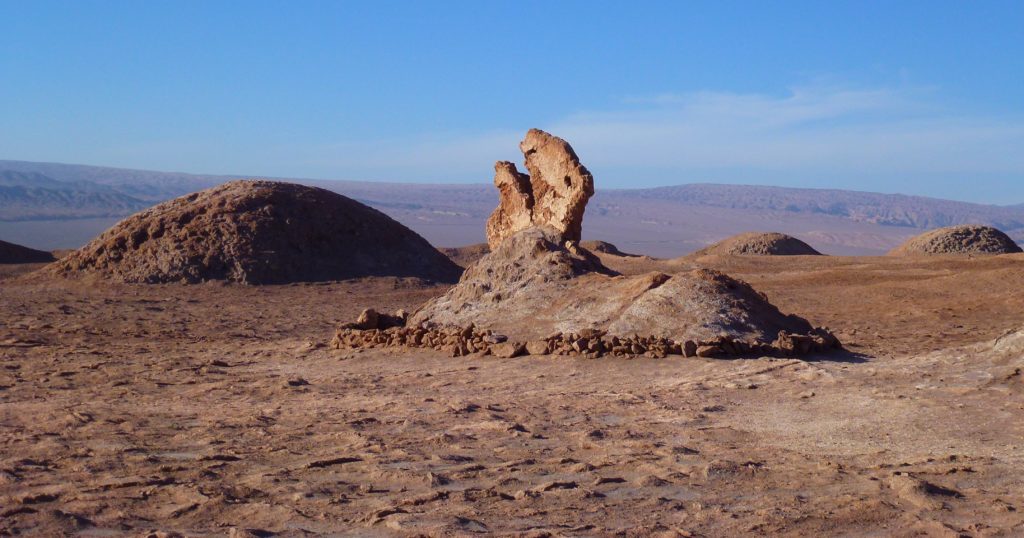
Looks like a Dinosaur’s head.
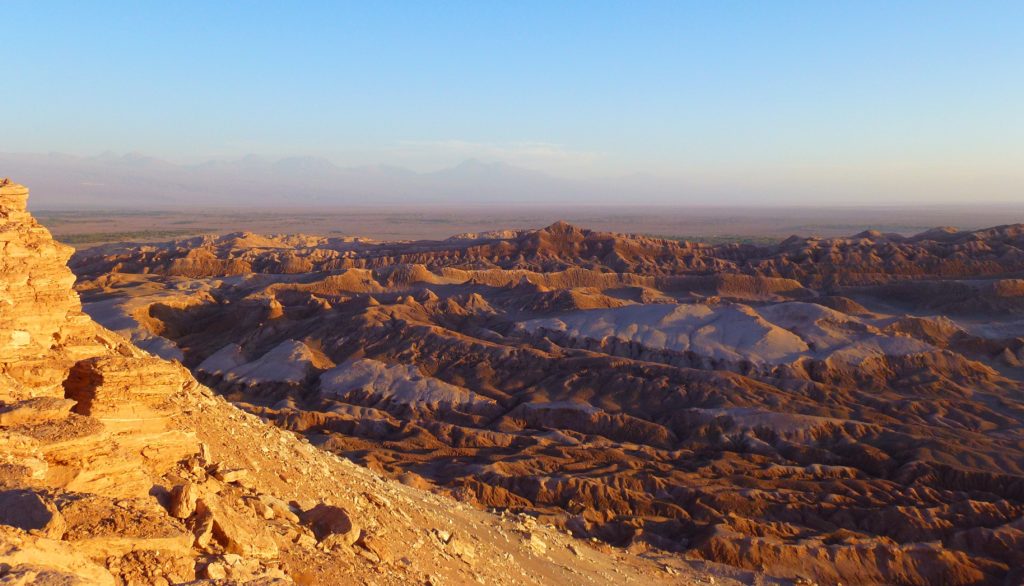
What a view!
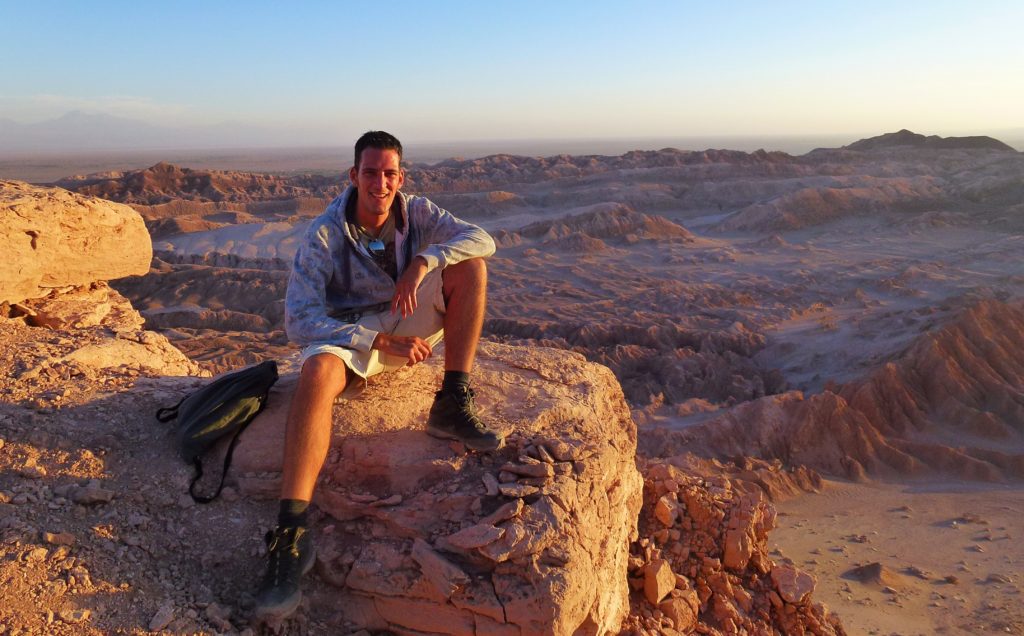
Happy days!
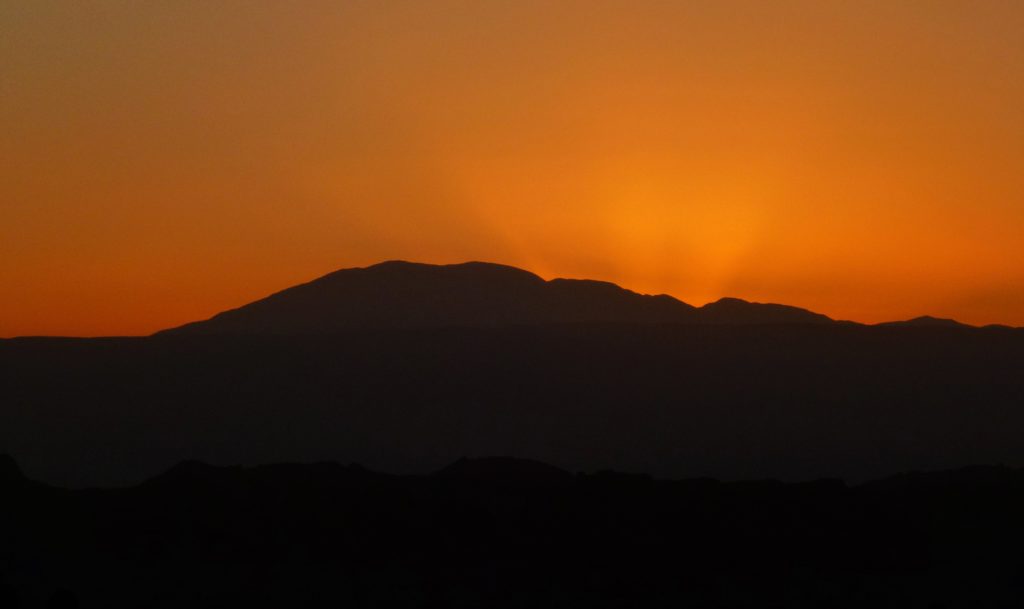
A perfect sunset to end the day.
The next day I visited the salt flats of Atacama and various salt water lakes. The salt water lakes are filled with hyper-saline water which makes floating easy. Always fun to do! The salt flats are very surreal.
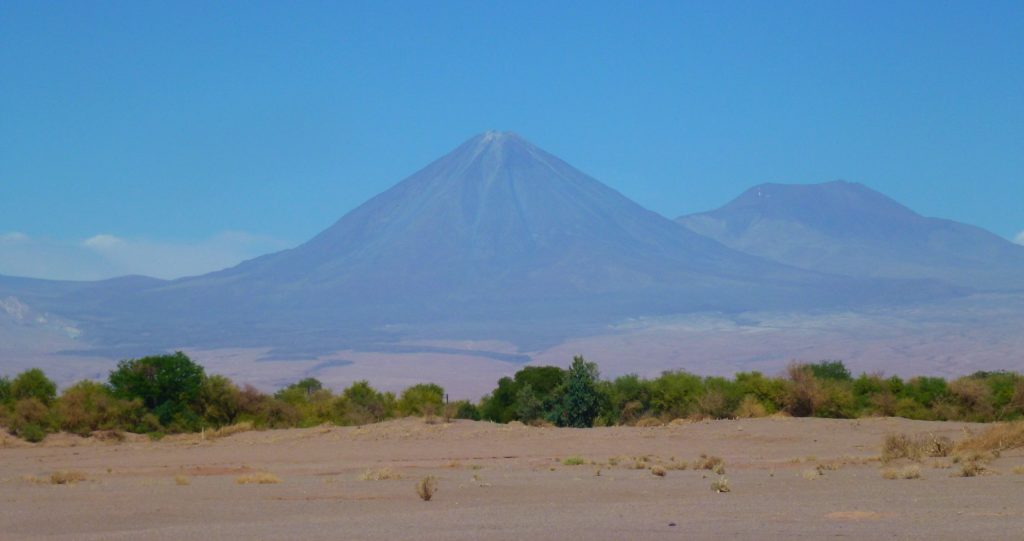
No shortage of mountains in this region.
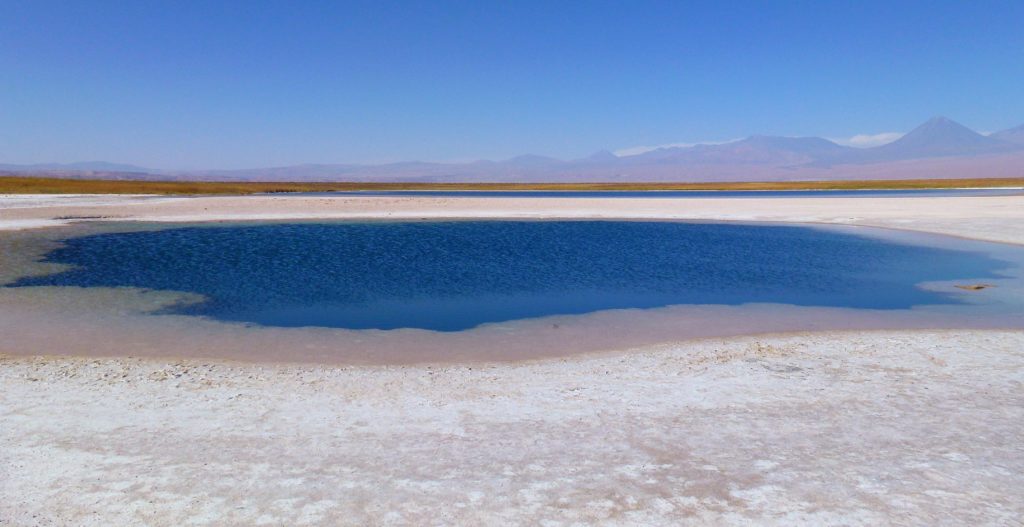
The salt water lakes of Atacama.
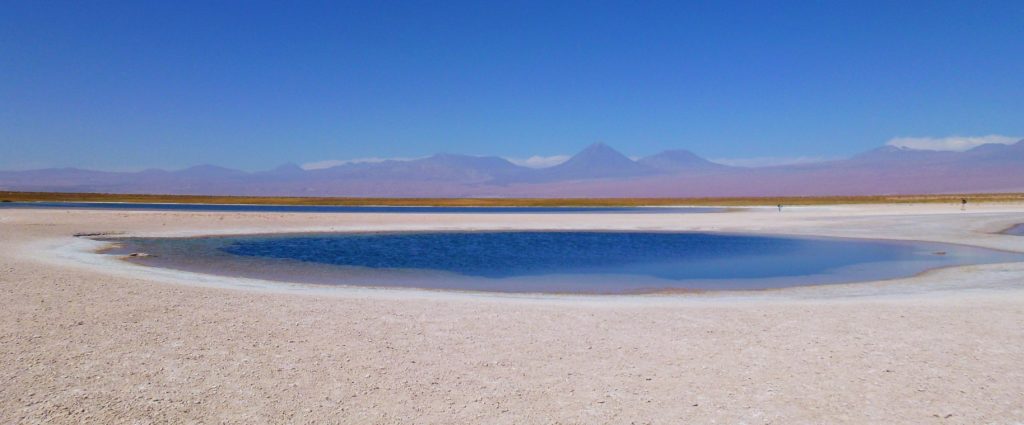
Incredible landscape.
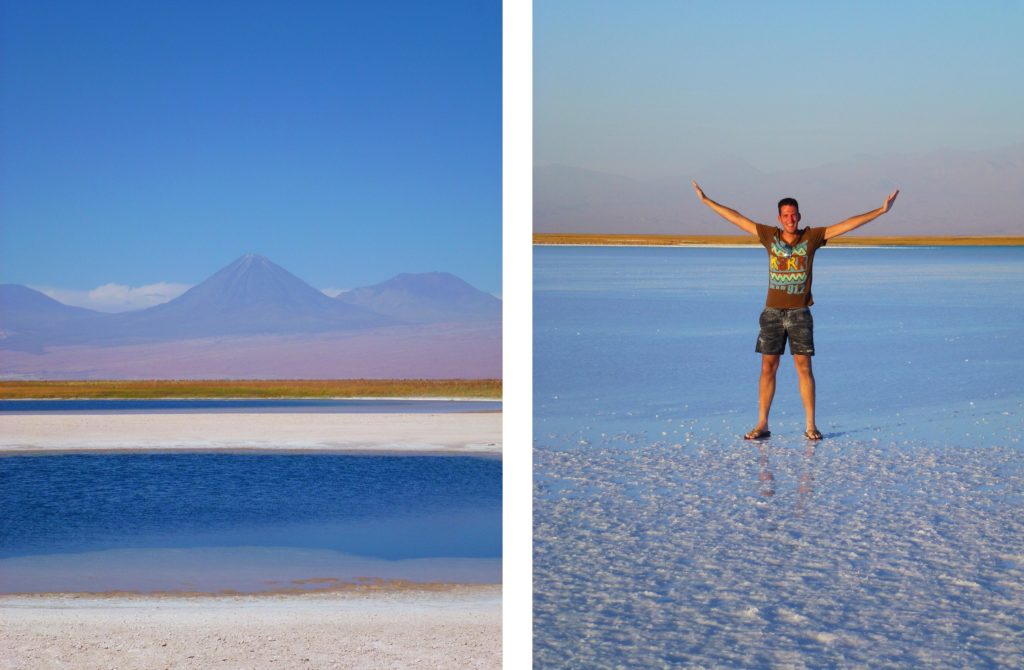
Left: The contrast of colors is amazing here – Right: The crispy salt flats of Atacama
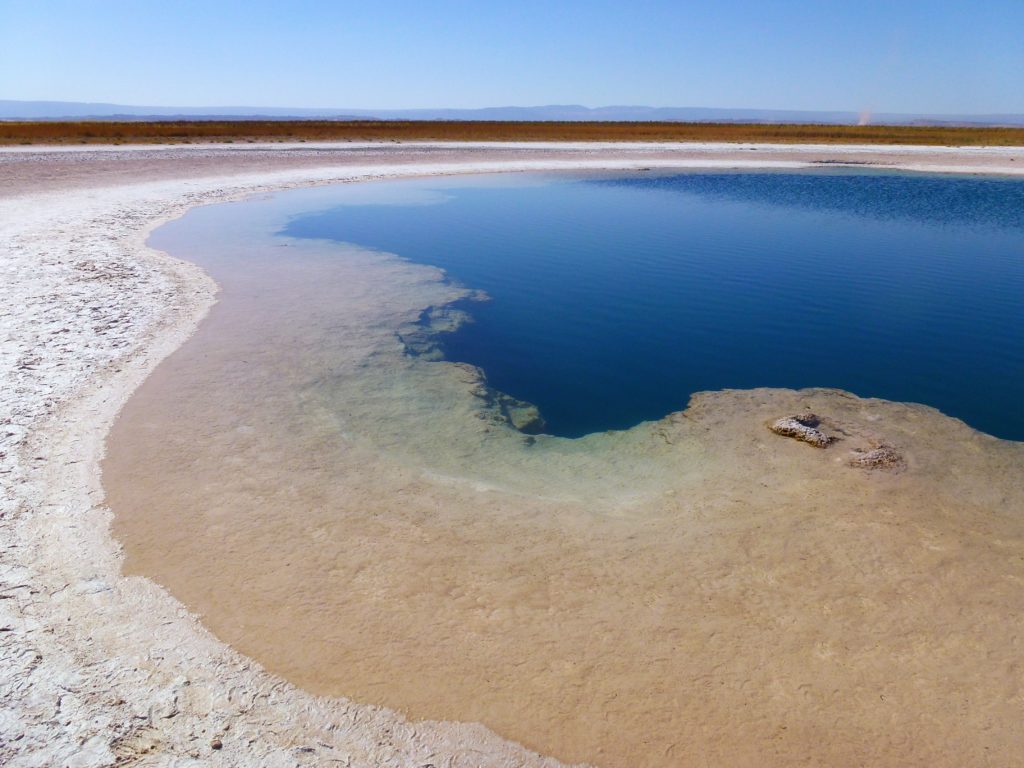
Let’s take a dip.
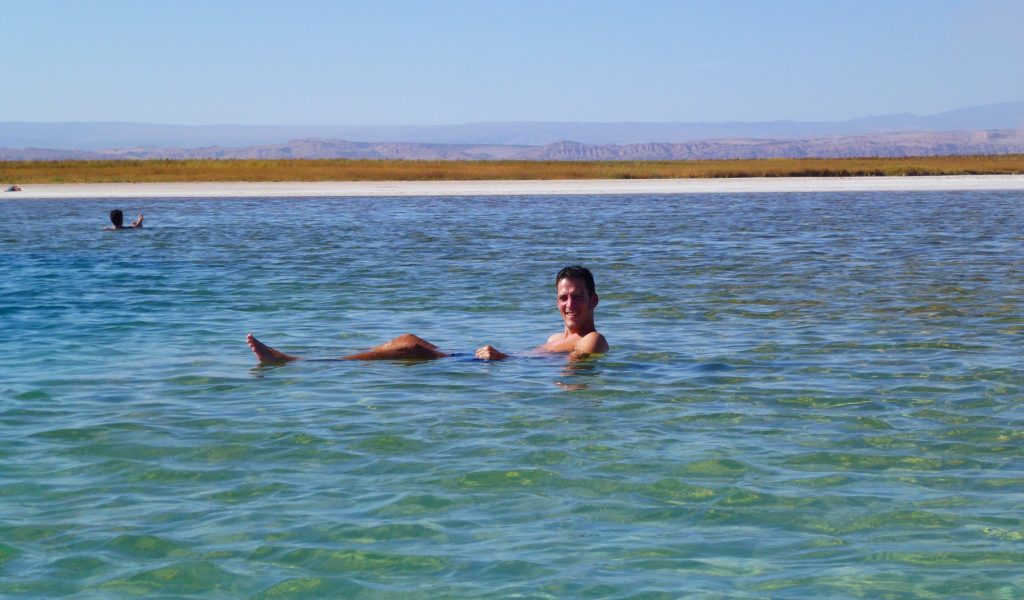
Floating the day away.
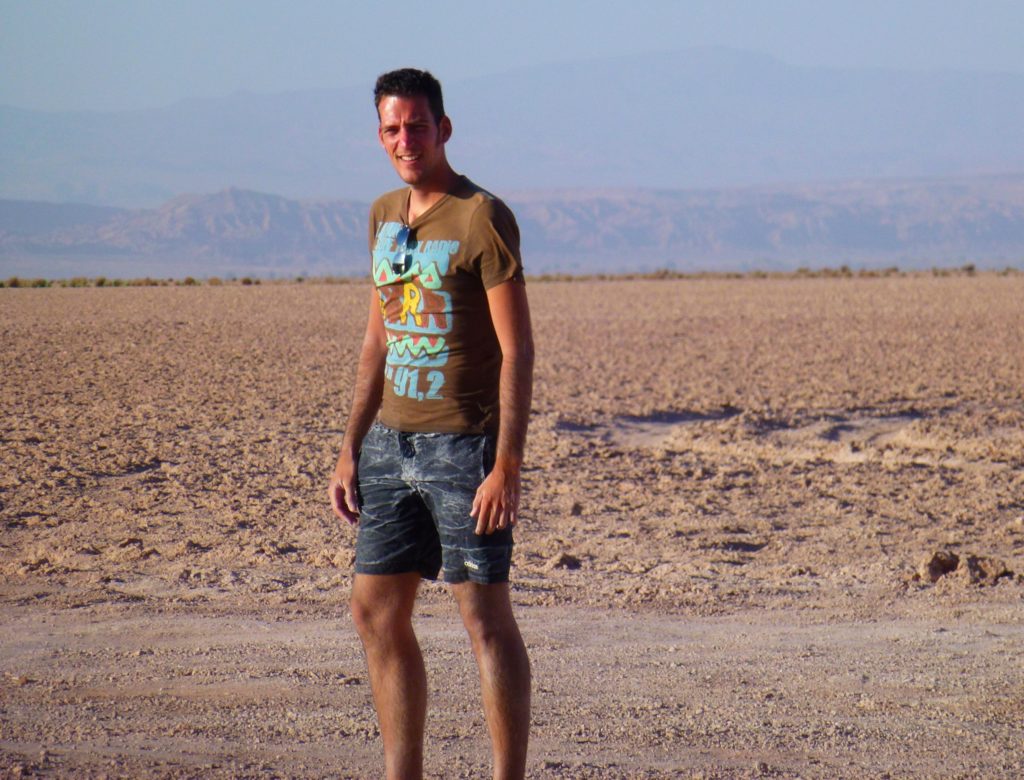
Nature fascinates me every day.
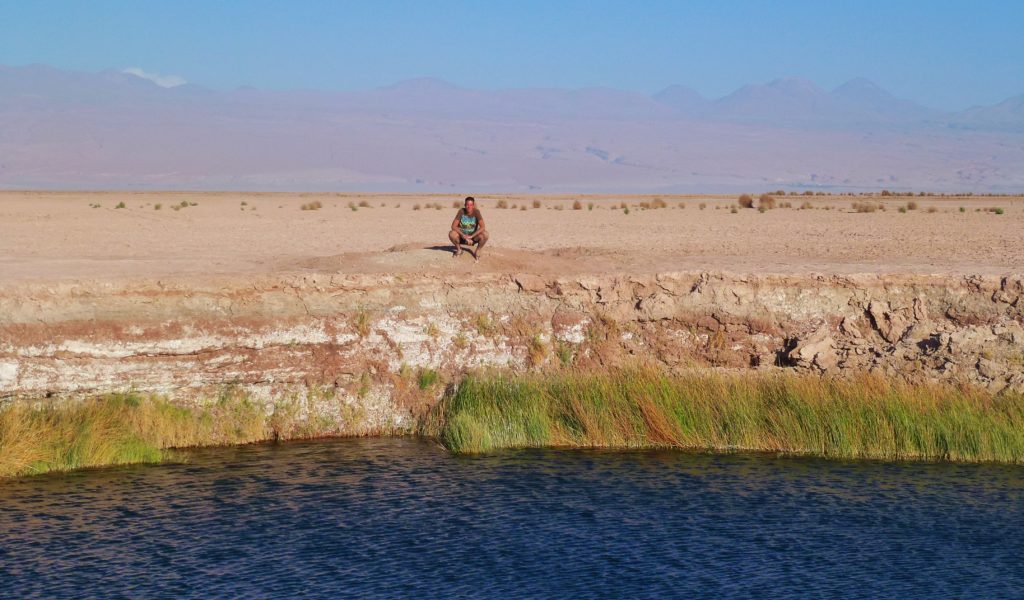
Beautiful lake.
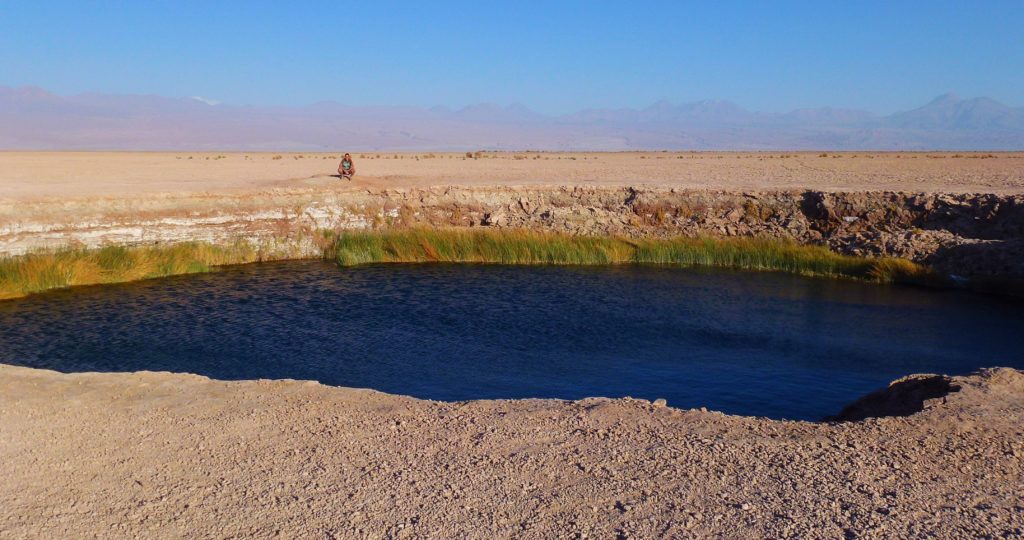
A big lake in the middle of the desert, is this a mirage?
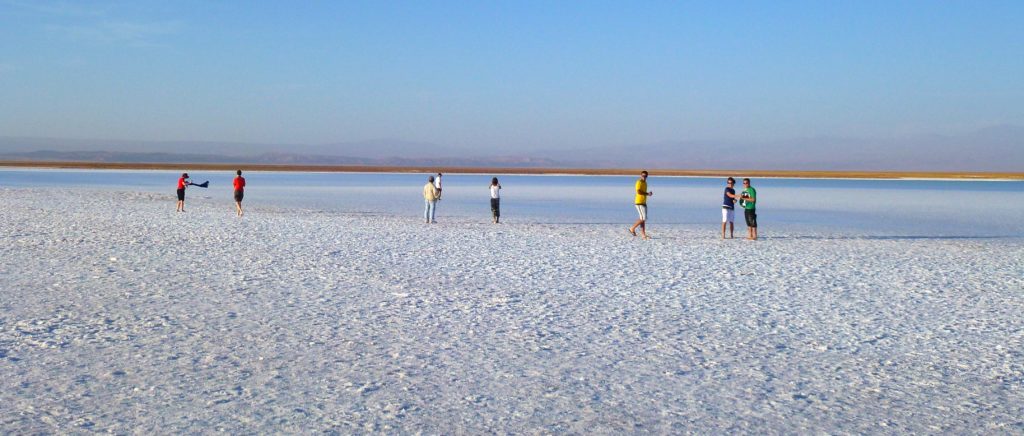
The crispy salt flats.
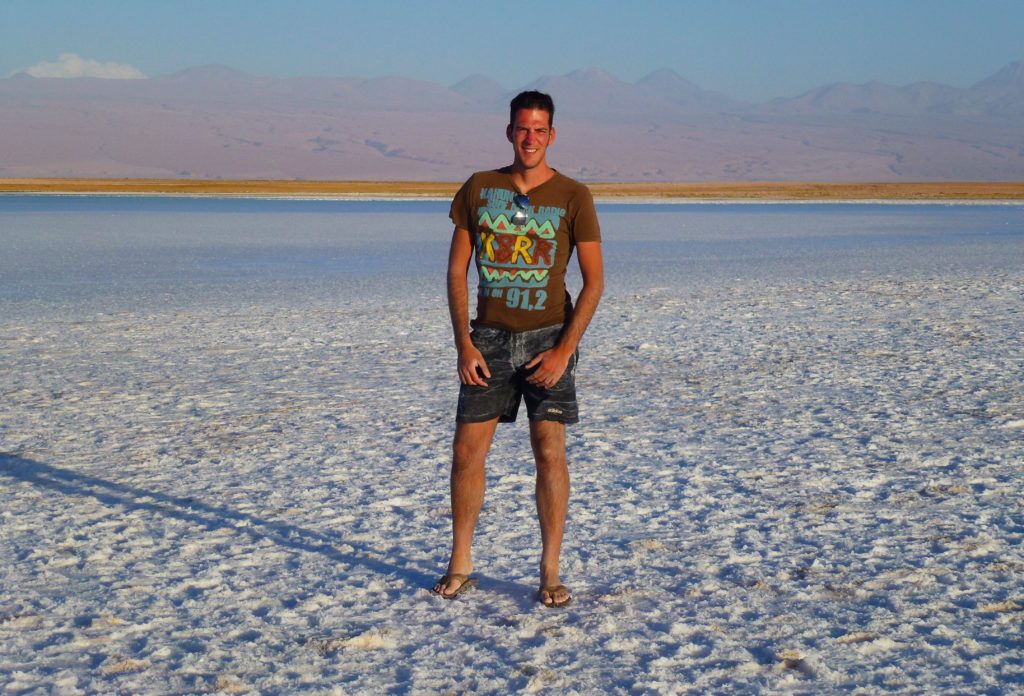
Happy days, always.
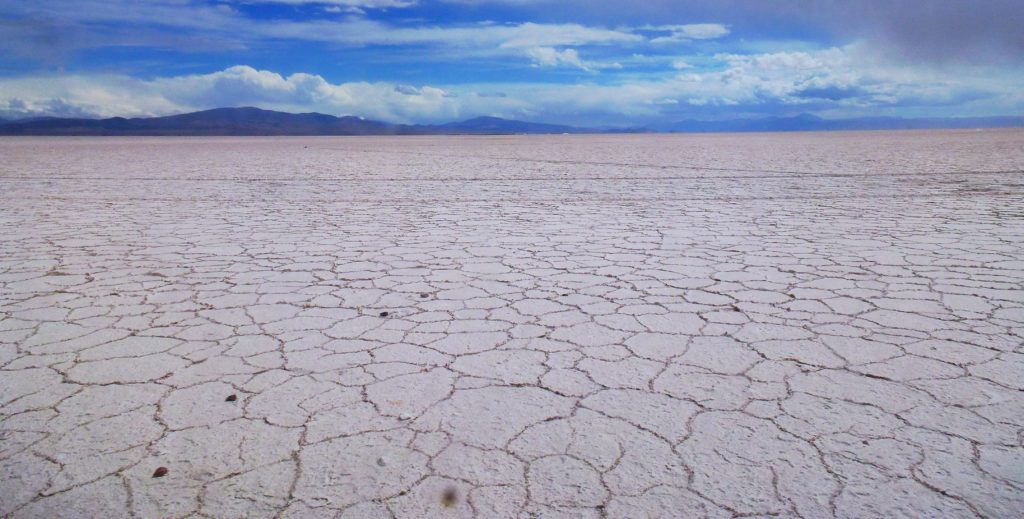
Such an extremely dry place.
The Atacama desert is one of few locations on the globe with 300+ days with clear skies in a year, along with no light pollution and its high altitude, making it perhaps the best place in the world for stargazing. You can enjoy the darkness of the night with its fresh air and lack of clouds, which makes the stars shine as in no other place on earth. I’ve never seen such a clear, bright and wide starry sky. Incredible! I visited an observatory in the Atacama desert to learn more about the stars and moon that surrounds us. The observatory is massive which makes it not difficult to snap a picture through it. So cool! The Atacama desert even become the home of the largest ground telescope in the world. The telescope has an astonishing diameter of 12 meters!
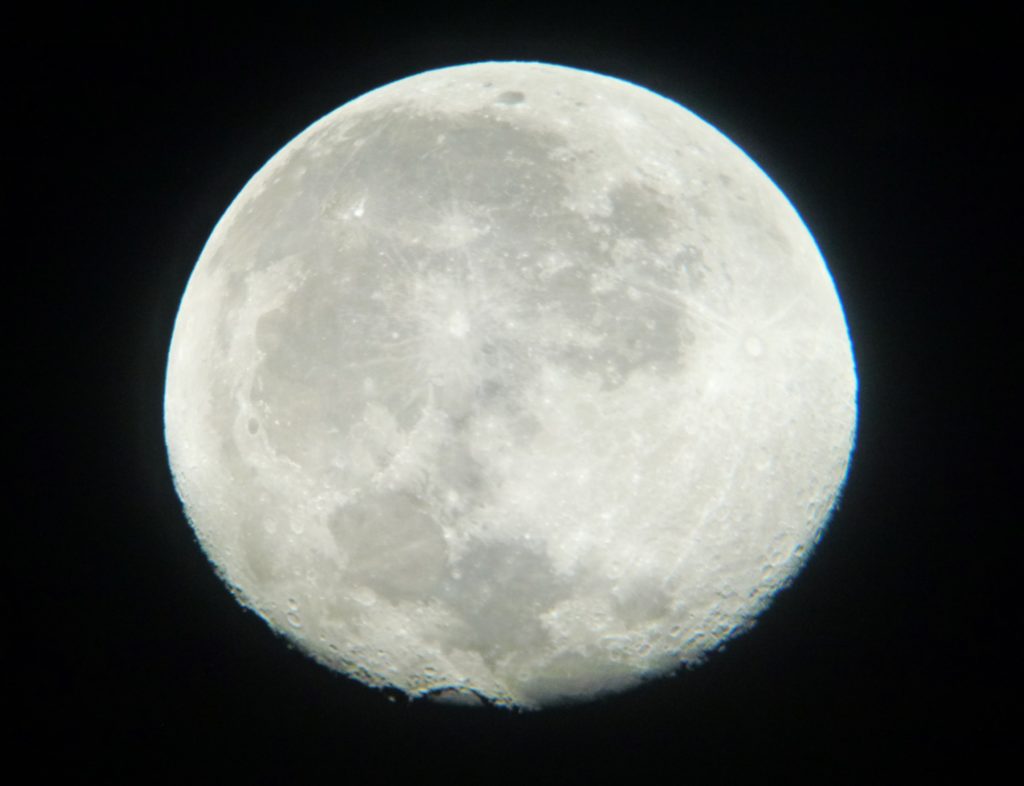
The moon is astonishing!
The north of Chile is magical. I had an amazing time in this region of Chile. It really proofs how incredible divers this fabulous country is. Be sure to not miss out the north of Chile!
From San Pedro de Atacama I took the bus back into Argentina, to beautiful Salta!
Wanna see more travel pics? Check out my Photo Gallery
